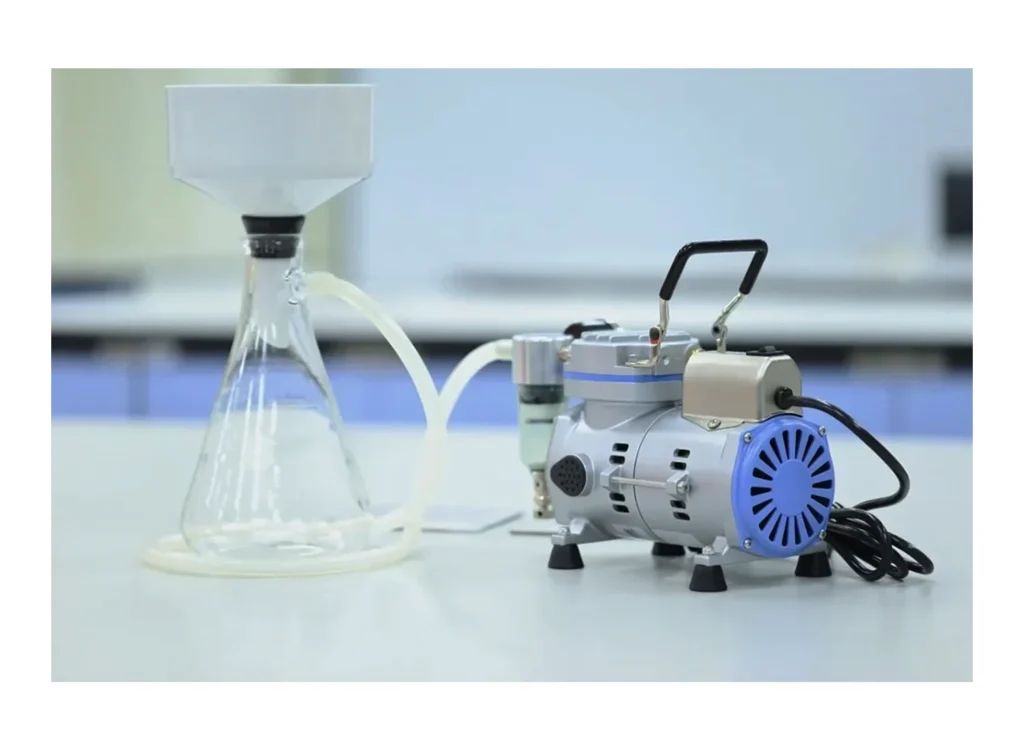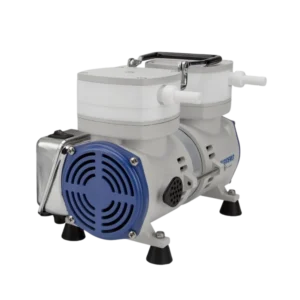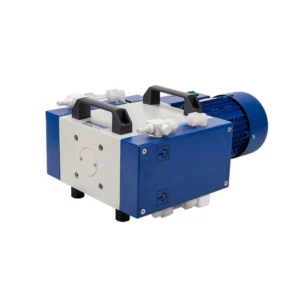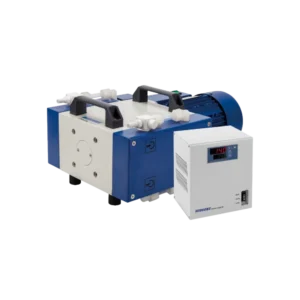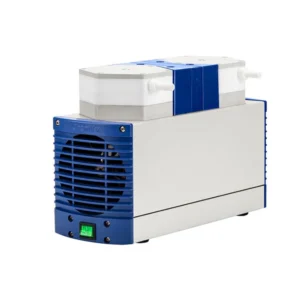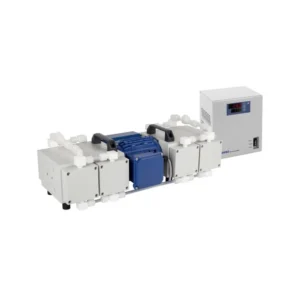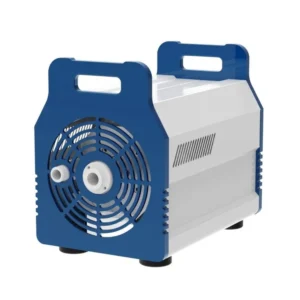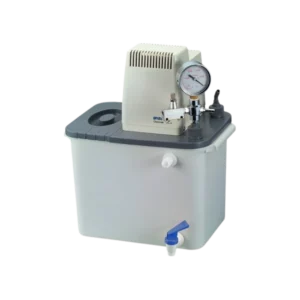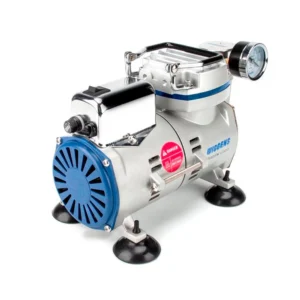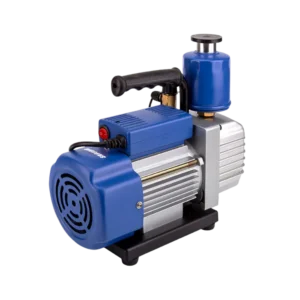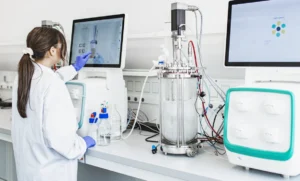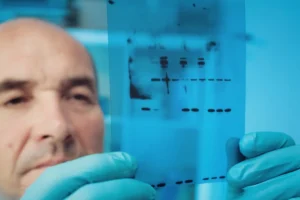Vacuum pumps are indispensable tools in the modern laboratory, enabling critical processes such as filtration, freeze drying, distillation, and rotary evaporation. At Apex Scientific, we proudly supply a wide range of Wiggens Vacuum Pumps, known for their reliability, performance, and chemical resistance. In this guide, we explore how to choose the right vacuum pump based on your application and discuss key performance parameters, chemical resistance features, and digital control options.
Wiggens Vacuum Pump Solutions
Wiggens offers several types of vacuum pumps, each tailored for specific lab needs:
- Oil-Free Vacuum Pumps: Ideal for cleanroom and contamination-sensitive environments, these pumps require minimal maintenance and eliminate oil vapor concerns.
- Diaphragm Vacuum Pumps: Highly chemical-resistant models are suitable for corrosive gases and organic solvents. These are excellent for rotary evaporation, filtration, and solid phase extraction.
- Rotary Vane Pumps: These pumps deliver a deeper vacuum than diaphragm pumps and are often used for freeze drying, vacuum ovens, and molecular distillation.
- Solvent Recovery Systems: Designed for recovering solvents efficiently, these systems are often used alongside rotary evaporators and vacuum concentrators.
Common Laboratory Applications
- Freeze Drying (Lyophilization): Freeze drying requires deep vacuum levels to sublimate frozen water directly to gas. Rotary vane pumps or specially designed diaphragm pumps are recommended, depending on the required vacuum depth and chemical resistance.
- Rotary Evaporation: Used for solvent removal, rotary evaporation benefits from vacuum control to reduce boiling points. Chemical-resistant diaphragm pumps with digital vacuum regulators help achieve precise solvent removal without bumping.
- Filtration (Buchner Funnels or Manifold Systems): These systems need consistent vacuum flow rather than deep vacuum. Diaphragm pumps with moderate flow rates are ideal, especially if handling corrosive substances.
- Solid Phase Extraction (SPE): SPE requires a stable vacuum to draw solvents through cartridges. Chemical-resistant, oil-free diaphragm pumps maintain the cleanliness of samples while resisting damage from organic solvents.
- Centrifugal Evaporation: Used to concentrate samples, this application requires chemically resistant vacuum pumps capable of handling volatile organic solvents without degradation.
- Vacuum Ovens: Often used in drying or curing applications, vacuum ovens need pumps capable of sustained low pressures. Oil-sealed rotary vane pumps are often preferred here for their deeper vacuum capacity.
- Distillation: Whether simple or fractional distillation, vacuum reduces boiling points and allows separation at lower temperatures. Pumps with precise vacuum control prevent product degradation during processing.
Understanding Vacuum Pump Specifications
When selecting a pump, it’s important to evaluate key specifications:
- Flow Rate (L/min or m³/h): The volume of air removed per unit time. Higher flow rates are essential for large-volume systems or faster evacuation.
- Ultimate Vacuum (mbar or Torr): The lowest pressure the pump can achieve. For processes like freeze drying or molecular distillation, a deeper ultimate vacuum is critical.
- Maximum Power: Refers to the motor’s power consumption. While not a performance metric on its own, it gives an idea of the pump’s workload and efficiency.
- Maximum Speed (rpm): For rotary vane pumps, this may indicate how fast the rotor spins, impacting both vacuum level and wear over time.
Digital Vacuum Control: Precision and Protection
Wiggens vacuum pumps can be paired with digital vacuum regulators, enabling:
- Accurate control of vacuum levels for sensitive applications like evaporation or distillation.
- Programmable vacuum ramps to prevent bumping or splashing.
- Enhanced reproducibility for standardized lab protocols.
This automation reduces manual intervention and increases process consistency.
What Makes Diaphragm Pumps Chemically Resistant?
Chemical resistance is vital for handling corrosive gases or volatile solvents. Wiggens’ chemical-resistant diaphragm pumps use:
- PTFE-coated diaphragms and valves
- PEEK or PVDF wetted parts
- Oil-free operation, which eliminates risks of contamination and degradation
These materials ensure long service life and reliable operation even in aggressive environments.
Conclusion
Choosing the right vacuum pump depends on the specific needs of your lab application. Whether you’re freeze drying biological samples or performing basic filtration, Wiggens offers a range of pumps optimized for performance, durability, and chemical resistance.Explore our full range of Wiggens Vacuum Pumps or contact us for expert assistance in selecting the right model for your laboratory in South Africa.
Recommended products
Chemical Resistant Diaphragm Pumps – A Series
Chemical Resistant Diaphragm Pump – C900 Series
C900 Variable Frequency Series – Diaphragm Pump
Chemical Resistant Diaphragm Pump – C Series
C1200 Variable Frequency Series Diaphragm Pumps
Chemical Resistant Diaphragm Pumps – C1200 Series
Electrical Aspirator Pump – VE11
Oil-Free Piston Vacuum Pump
Rotary Vane Vacuum Pumps

